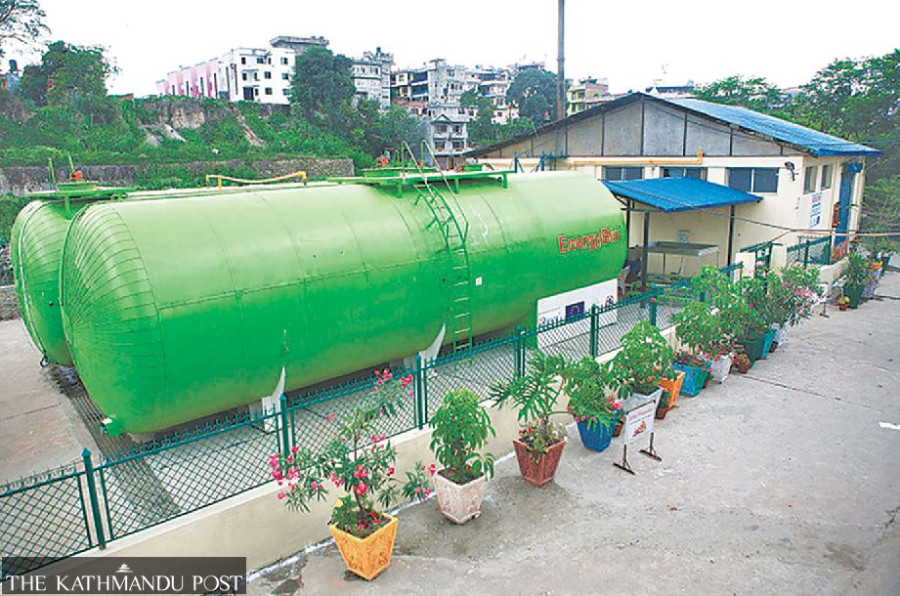Kathmandu
City starts producing methane out of Kathmandu’s garbage
The plant is currently producing eight tonnes of biogas daily and it will be a while before it starts generating electricity too, officials say.
Post Report
The Kathmandu Metropolitan City has resumed generating energy out of biodegradable waste at its Teku-based biogas plant.
The Environment Department revived the plant last Saturday with the help of the non-profit National Innovation Centre. The plant was established in 2017 but had remained dormant after a few days of operation. The centre repaired a pump and machines to help bring it back to life.
“We have been producing eight tonnes of methane gas since last Saturday,” said Nabin Manandhar, spokesperson for the KMC. “We need a balloon to produce electricity.”
A balloon is used to collect the methane gas, which is then processed through a generator to produce electricty, according to Rabin Man Shrestha, chief of KMC’s Environment Department.
Manandhar said the drive is part of the KMC's plan to reduce organic solid waste produced in Kathmandu. Waste management remains a highly-charged issue in Kathmandu. When Balendra Shah was elected Kathmandu’s mayor last year, he vowed to solve the city’s long-standing garbage problem. But his administration has not been able to make good on that promise, critics say.
The plant was established during Shrestha’s previous tenure as environment department chief. He said it remained unused because he was transferred to another department.
“The then management of the environment department didn't really care about it,” Shrestha said. “Now I am reviving it again.”
The biogas plant, which is Nepal’s first, came into operation in June 2017. But soon, it ground to a halt due to a shortage of manpower, officials said.
Shrestha, who was recently reappointed the chief of the Department, said the plan will contribute to reducing organic waste in Kathmandu.
Officials at the KMC said they will buy the balloon, which costs around Rs600,000, within two weeks and start producing electricity.
The bioplant, established under the Integrated Sustainable Solid Waste Management Project, was said to produce 14KW of electricity, 300 kg of organic fertiliser and 13,500 litres of water daily, processing three metric tonnes of organic materials. The KMC and the European Union had jointly invested Rs18.2 million in the plant.
Fresh into his new tenure, Shrestha said he is determined to utilise it. “I worked hard to establish this plant here,” he said. “And I will make good use of it.”




 20.12°C Kathmandu
20.12°C Kathmandu









